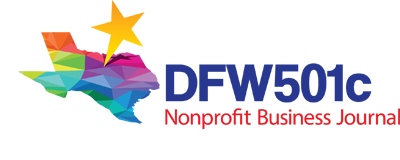After the kids went to sleep one day, my partner and I put up “Ugly Delicious,” a show where celebrity chef David Chang explores different types of food and talks to various chefs and restaurant owners. In one episode, he explores Viet-Cajun, the combination of Vietnamese and Cajun. It was great, until he interviewed a Vietnamese shrimp fisherman whose family came over decades ago, who worked hard, overcame racism (including the KKK attacking shrimping boats), and became successful. When Chef Chang asked his opinion on more recent immigrants and whether he could empathize with them, the dude said something along the lines of “Well, we worked hard, but a lot of immigrants these days just want handouts.”
When we think of white supremacy and who upholds it, we think of white folks. White people clearly benefit most from systems designed to uphold whiteness as the default and concentrate power in the hands of white people. So much of our work in nonprofit and philanthropy is to de-center this whiteness. I’ve been encouraged to see white colleagues engaging with the uncomfortable and necessary conversations around systemic racism and taking actions aligned with racial equity.
However, the inescapable pervasiveness of white supremacy means that we POCs are not immune to perpetuating it, consciously or unconsciously. Just look at any social media conversation about race, Black Lives Matter, injustice, systemic change, etc. There will always be several people of color who serve as a layer of defense for awful views. It’s been sad and disappointing to encounter POCs who insist on being “color-blind,” who believe they succeeded because of hard work while others in similar situations are lazy. In POC communities, there is still a lot of anti-Blackness. I have friends who have gotten into fights with Asian relatives who condone state-sanctioned murders of Black people (we need to get into these fights, even with our closest family members!).
People of color upholding white supremacy is confusing. I was talking with a colleague, Rashad Morris, on this topic when he mentioned “Highlander Syndrome,” a term he heard from another Black colleague a decade ago. It comes from the Highlander movies and TV shows, about immortals who constantly try to kill one another, because at the end “there can only be one.” (This should not be confused with the unofficial name of a medical condition that prevents people from aging. And update: We are now, at least temporarily, calling it the Only Be One (OBO) Syndrome, to not affect the work of the amazing Highlander Research and Education Center).
In the context of what we’re talking about today, this is when a member of a marginalized community, once having achieved some level of privilege, becomes a gatekeeper to prevent other marginalized people from achieving the same privilege. As exhausting as it is for most of us to be the only person of color at an organization, event, committee, or whatever, for some it confers a degree of power, privilege, and even safety that they want to protect.
“Whenever I think of [this],” says Rashad, “I also think about the house slave versus the field slave, like the character of Stephen in Django Unchained (played by Samuel L. Jackson). He’s conditioned to see himself as different, special. And fights hard to maintain that status. How often have we as POC, especially Black folks, heard the phrase ‘I don’t mean you, you’re different;’ ‘I don’t think of you as Black.’”
This desired proximity to whiteness and white acceptance, and the temptation to protect it once you have it, is a survival mechanism. Over centuries many of us have internalized it, and it is now entrenched as a significant barrier to our work of addressing injustice. White supremacy relies on all of us being divided to maintain itself. When we prioritize our own proximity to whiteness above what is equitable and just, we become a cog in the machine of oppression. We often become unwitting tools. We see this in politics with POCs who have abhorrent views being given platforms to spout their xenophobia and prejudice. This is an incredibly effective tactic, because how can you argue with a person of color when they support “all lives matter” or insist that asylum seekers are criminals? I mean, they’re a person of color, so obviously they have some authority on the subject, right?
In our sector, I’ve seen so many instances over the years of POCs who prevent progress, who uphold white moderation. A board member of color who blocks a public statement of support for Black lives. An ED of color who prevents implementation of equitable hiring practices such as disclosing salary ranges and not requiring formal education. A fundraiser of color who prioritizes the comfort of white donors. A foundation program officer of color who insists on using the same ineffective grant strategies for allocation of funds instead of allowing targeted funding to go specifically to Black, Indigenous, and other marginalized communities.
Sometimes POCs are weaponized to maintain status quo. For instance, a neighborhood group that’s against low-income housing will have POCs testify at public hearings in order to conceal its racism. On social media and elsewhere, POCs get tagged in to defend archaic or inequitable philosophies and practices all the time. Few things are more damaging to the work of addressing systemic injustice than people of color defending systemic injustice.
Of course, I know communities of color are not monolithic. The assumption or expectation that we should all think similar thoughts about racism or anything is in itself racist. We deserve the right and opportunities, just like everyone else, to have unpopular, controversial, or just different viewpoints. At the same time, those of us doing this work, the work of creating a just and inclusive world, must understand these complex dynamics so that we can control for them.
Also, this is not just something that affects people of color. As Rashad says, “I can imagine, and have heard of similar situations playing out among gay male athletes, for example, or female executives in male-dominant environments. To continue being associated with dominant culture, they deploy oppressive and undercutting tactics against the people who have traits most like themselves.”
All of us are susceptible to it. I am sure that if there were another vegan Vietnamese blogger who also has stress acne and writes about nonprofit stuff, my hackles would be raised. But jokes aside, because all of us are affected, it’s important for all of us to take measures:
POCs and others from marginalized communities: We need to constantly be vigilant of how white supremacy and patriarchy divide us. The desire for proximity to whiteness and patriarchy—and with it the access to resources, power, and privilege—is often not conscious. The same goes for gatekeeping, undermining, or sabotaging of others who also face systemic oppression. We may be causing harm without realizing it, without intending to. We must be cognizant of how we may be used as tools to further inequity and injustice. Let’s be aware of how we have benefited from others who came before us who may have helped us get to where we are. And when we have achieved some level of success, let’s use our privilege and access to open doors for and lift up others. Our communities’ chance to survive and thrive depends on us all being mutually supportive of, and building solidarity with, one another.
White colleagues and others from dominant communities: I know you’ve been told to trust people of marginalized backgrounds when we tell you about our lived-experience, and generally you should. But you still need to do some critical thinking so that you don’t get affected by what I’m calling the “Equity Halo Effect,” where an opinion is automatically valid simply because it’s given by a person of marginalized backgrounds. Do your homework and reflection. Ensure that those who claim to represent certain communities are actually a part of those communities. Be thoughtful when you pull in colleagues from marginalized backgrounds to bolster your views and arguments; if your arguments do not stand on their own when delivered by you, then you probably need to do some more work. (Also, don’t feel uncomfortable about sharing this blog post. Share it!)








